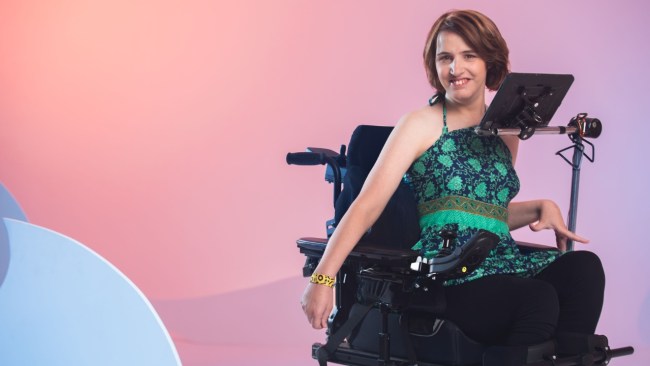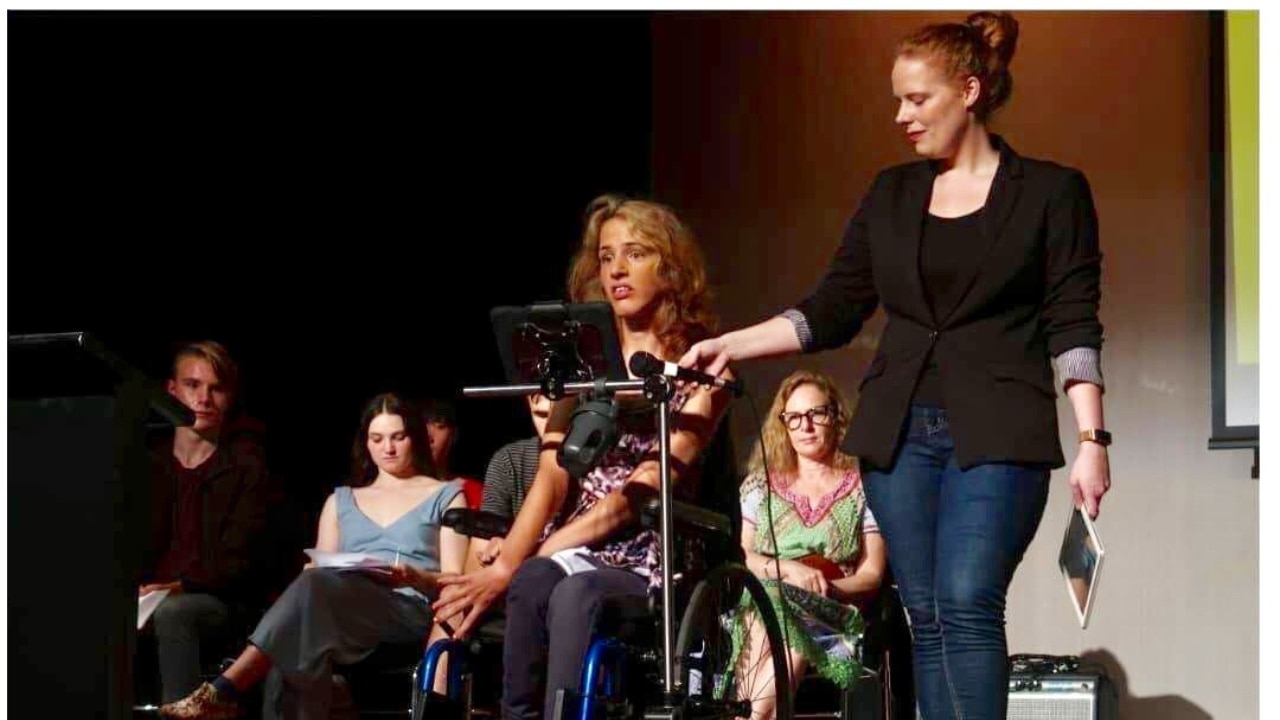“If you have a child with a disability, just bring them up as an average person, and instill them with the belief that their disability isn’t their whole identity.”
Written by Joel Erikson for the Courier Mail, December 1, 2023
Gretta Serov has experienced more adversity in her first 32 years than most people do in a lifetime, but she won’t let that stop her from living life to the fullest.
The Penrith resident was born with Cerebral Palsy, and is a non-verbal wheelchair user who needs an iPad to communicate.
Despite her disability, Gretta has carved out a successful career as a motivational speaker, graphic designer, and founder of On Our Own Tracks, a blog dedicated to sharing the stories of people who have also overcome unique challenges.
Want to join the family? Sign up to our Kidspot newsletter for more stories like this.
Gretta told Kidspot one of her biggest challenges as a child was figuring out how to navigate life with lessened vision.
“One of the biggest challenges was discovering that my disability affected my vision,” she said.
“I was 9 at the time, so this meant I needed to start doing specialist work and repeat year 4 in order to get my education up to speed with the rest of my peers.
“This situation had a few little challenges attached including meeting a brand-new year group and getting my head around the ins and outs of my vision impairment.”
RELATED: My mum said it was my fault I’m disabled and I shouldn’t have been so reckless

Gretta Sarov is an ambassador for International Day of People with Disabilities. Picture: Supplied
“The biggest reason I’m where I am today is my family”
Gretta passed her first tests with flying colours, thanks largely to the support she received from her family and friends.
“Being truly honest, the biggest reason I’m where I am today is my family,” she said.
“They immediately saw the abilities I had, and they made sure I was put in a mainstream classroom setting from the day I started kindergarten with the thought I was part of 30 other students and wasn’t ‘special’.
“Having this thought in my head made me realise my disability sometimes wasn’t that bad compared to what my friends were dealing with in their own lives.”
Gretta told Kidspot it was important for people, and especially parents, to make sure they treat people with disabilities just as they would treat anyone else.
“Treat them just as an average person,” she said. “Don’t identify them as their disability, and try not to be stereotypical in your reaction to them, especially if they are non-verbal.
“If you have a child with a disability, just bring them up as an average person, and instil them with the belief that their disability isn’t their whole identity.”
RELATED: Mum’s anguish: ‘I would lie even though I knew it was wrong’

Gretta is a motivational speaker, one of her many professional hats. Picture: Supplied
“Strive to make your dreams a reality even if it seems impossible”
Gretta now lives independently with the help of an “incredible” support team, and is focussed on helping other people living with disabilities reach their full potential.
“I try to tell people the best thing you can remember is that your disability isn’t your whole identity, and that everyone has something affecting their lives,” she said.
“I always recommend that you strive to make your dreams a reality even if it seems impossible.
“The idea for my blog started after I had a few life-changing events happen to me that highlighted the amazing support I had around me, and I wanted to pay that forward and have the freedom to develop my writing career and write about whatever I felt needed to be said.”
In recognition of her great work, Gretta has been named as one of the ambassadors for International Day of People With Disability on December 3.
“International Day of People With Disability is an amazing and powerful day as it highlights the strengths of the disability community,” she said.
“I am so honoured to be an Ambassador, and I really want to represent the non-verbal and severely disabled members of our community, and promote the integration of the disabled and able-bodied communities.”
